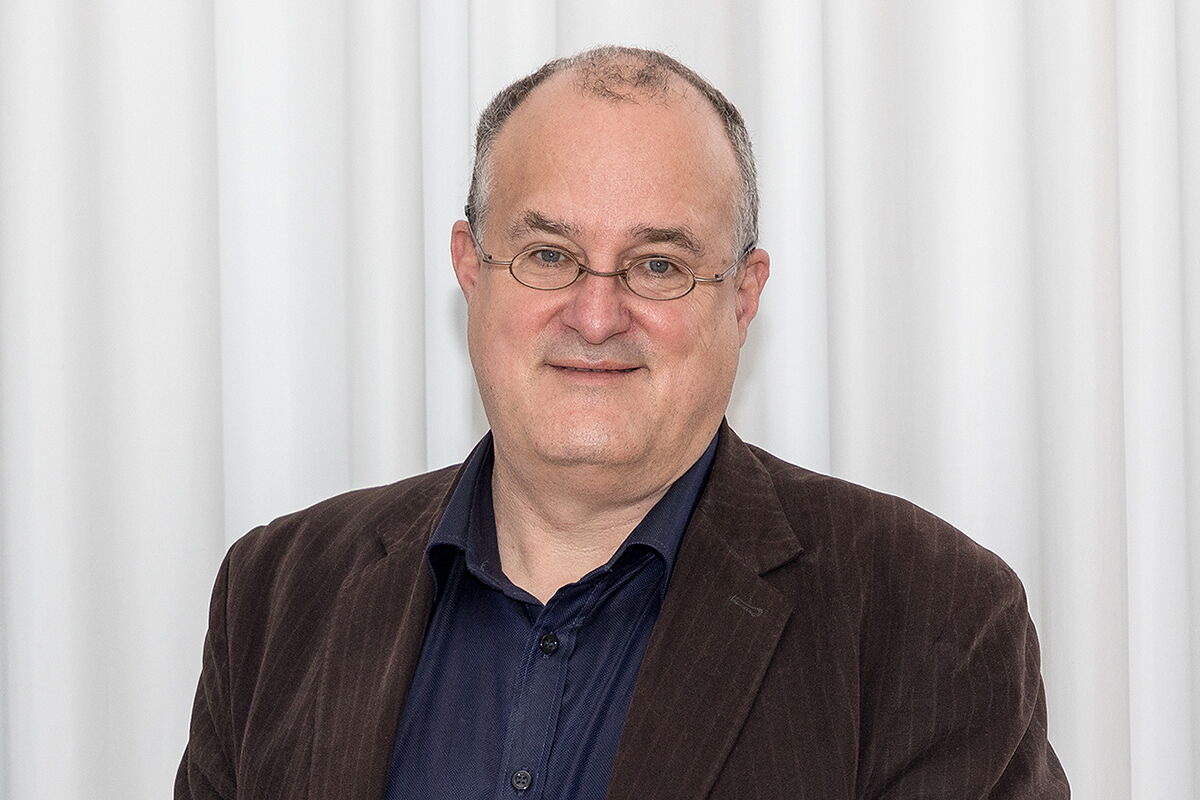Visual Axis Strasbourg-Karlsruhe: French Honorary Professor at the Karlsruhe Institute of Technology

On March 17, 2021, Prof. Alexandre Kostka, cultural historian at the Université de Strasbourg, has been appointed honorary professor by the Senate of the Karlsruhe Institute of Technology (KIT). In an interview, Kostka speaks of interconnections between Karlsruhe and Strasbourg in terms of urban planning and the profile which he will give to his honorary professorship.
Prof. Kostka, how did the cooperation with the KIT come about?
Kostka: This honorary professorship continues my joint work with the KIT Institute for the History of Art and Architecture which has begun in 2017. In the curriculum, we offer joint seminars and excursions for students from Karlsruhe and Strasbourg, mainly within the Erasmus Mundus Master’s program “Euroculture” at the Université de Strasbourg. In addition, I had been a DAAD visiting professor at the KIT in winter semester 2019/2020. The successful cooperation has now resulted in the honorary professorship, a special award and assignment which, incidentally, does not exist in this form in France.
What will now be your actual focus at the KIT?
Kostka: In each semester, I will organise a seminar there on topics which primarily concern the common “artistic and technical heritage” of the Upper Rhine region. I will focus on the 19th through the 21st centuries. I am planning to start with the architect Fritz Beblo (1872-1947), who had such a decisive influence on the cityscape of Strasbourg that many people mistakenly refer to him as “City architect”. At that time, there was no architectural training in Strasbourg itself, but such existed in Karlsruhe. Beblo was one of many architects who were trained in Karlsruhe and then went to Strasbourg. The Neustadt was still a construction site at that time. Yet, from 1890 on, the city experienced a real building boom that was largely influenced by a mode of urban planning stemming from Karlsruhe. Beblo was the head of the structural engineering office then. My KIT students will work together conceiving an exhibition on Fritz Beblo, which will be on display at the Bibliothèque nationale et universitaire de Strasbourg in the autumn of 2022.
So you are looking at the Franco-German connection through the lens of cultural history?
Kostka: Yes. I do not merely regard this professorship as an honour, but also as an opportunity for the following years to delve into the special, divided, Franco-German heritage more deeply that connects both banks of the Rhine. There is still a lot to do for a better understanding and, consequently, a better handling of the countries’ divided heritage.